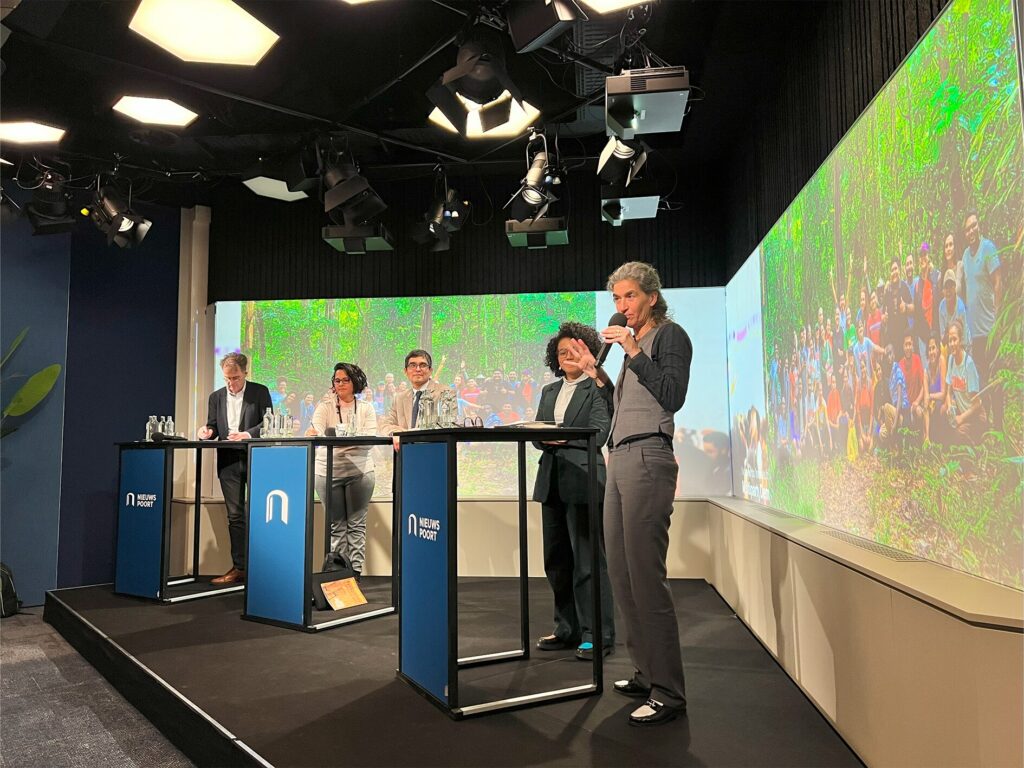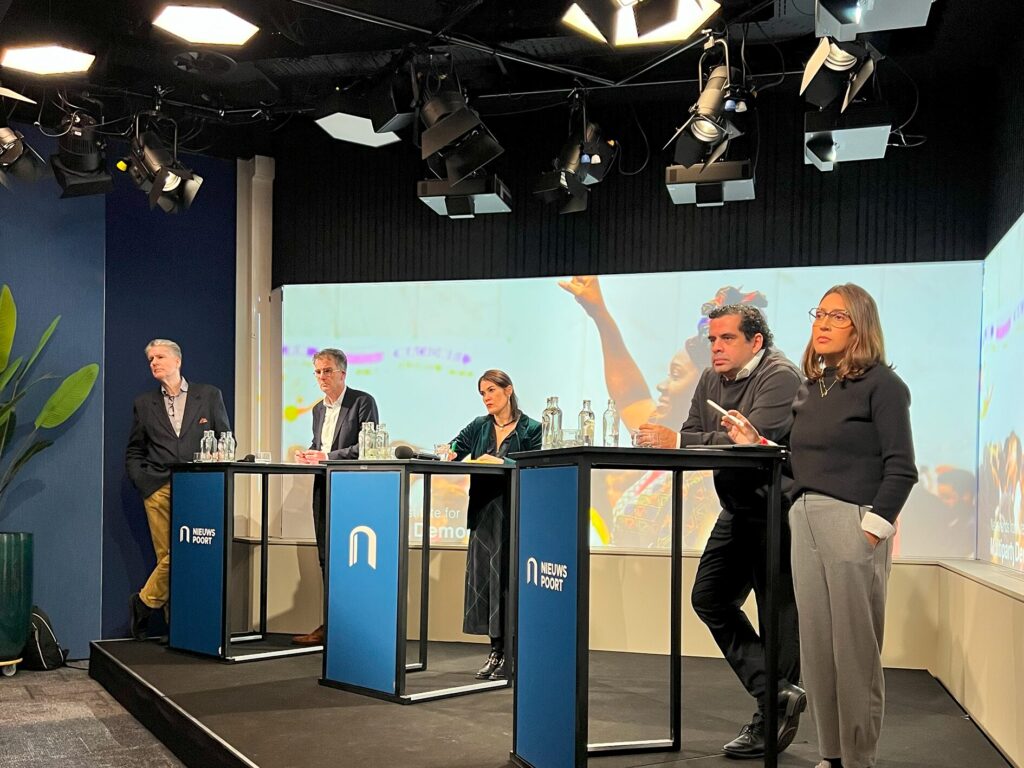Exploring the connections between Latin America and the Kingdom of the Netherlands

What connects the Amazon rainforest, Venezuelan migration, and organized crime in Europe? More than you might expect. The ties between Latin America and the Kingdom of the Netherlands through the Caribbean Netherlands mean that these neighboring territories share many challenges – from climate change to public safety – and need to work together effectively to address them.
Hivos and NIMD recently convened a panel of experts to explore these connections. The event painted a vivid picture of how these regions are intertwined and why working together and international cooperation matters more than ever.
A shared responsibility
The event began with a reminder of proximity. “As the Netherlands, we are neighbors of Latin America, and like neighbors, we share opportunities and challenges,” noted Tijmen Rooseboom, Executive Director of NIMD. He added that it’s not just about geography – it’s about grappling with problems that cross borders, from human trafficking to climate change.
Dutch Ambassador to Costa Rica, El Salvador, Guatemala and Honduras, Arjen van den Berg, stressed the importance of the relations between the Netherlands and Latin America, especially now, pointing to previous cooperation in high-priority areas such as human rights, security and climate.
Organized crime is a global problem
During the first panel, Jeremy McDermott, Director of Insight Crime, described how transnational crime has a direct impact on people in the Netherlands. He linked drug-related violence in the Netherlands – including the murders of prominent figures like journalist Peter R. de Vries and lawyer Derk Wiersum – to organized international drug trafficking. “The Netherlands had already become one of the main, if not the biggest entry point for cocaine into Western Europe. Unfortunately, it took a series of high-profile killings to wake up the Dutch government,” McDermott said.

In the discussion that followed, McDermott was joined by Ana Cristina Rodríguez Pineda (Ambassador of Guatemala), Juan Meléndez (Country Director of NIMD El Salvador), and Ángela Rodríguez (Country Director of NIMD Colombia). One of their main conclusions was the need for a coordinated approach to protecting democracy, human rights, and the environment.
Rodríguez used Colombia as an example, where the 2016 peace agreement is under strain because of their narrow approach to security. “In Colombia, we’re going back to violence because you can’t compartmentalize any one issue – like fix democracy, fix human rights, fix environmental issues – separately. They’re all connected in some way,” she explained.
McDermott emphasized the need for coordinated international efforts to combat crime. “The only way to fight transnational crime is transnationally, as the criminals themselves also work together multilaterally.” He recommended that European countries with historical ties to Latin America, like the Netherlands, take the lead in these efforts.
Collaborating for environmental protection
The Amazon took center stage in the second panel. As deforestation accelerates and seasonal weather patterns shift, climate and environmental issues are a crucial topic for the entire region, especially the countries of the Amazon. Yet those who live in and protect the rainforest are often overlooked. And the consequences of climate change in the Amazon also ripple far beyond Latin America.
Paula Moreira, program manager of the Voices for Just Climate Action (VCA) program at Hivos Brazil, opened by describing the state of the Amazon. She explained how normal seasonal weather patterns are changing, posing threats to Indigenous communities and forcing their displacement.
Fabio de Castro, assistant professor of Brazilian studies at CEDLA, echoed the need for a just energy transition with greater attention to human rights. “We need to think about the energy transition as a just and sustainable process. In Latin America, there is significant pressure on critical mineral reserves, and we need to consider the implications of how those reserves are explored,” he said.
“For every tree standing, there’s a community fighting to keep it that way,” remarked Thaís Santos, program manager of Hivos’ Global Girls Creating Change (G2C2) program. She said that Indigenous and local leaders are on the frontlines, facing threats to their wellbeing and livelihood in order to protect the forest. “And when the rivers dry up or the rains don’t come, it’s women and girls who are affected,” she added. “They’re the ones who have to walk further and further from home to find water for themselves and their families.”
Dutch parliamentarian for the Green Labour Alliance, Daniëlle Hirsch, pointed to grassroots and feminist movements in Latin America as an example for Dutch people. “I wish we were learning faster from the people who have been fighting power for decades in very difficult circumstances. The sooner we learn from them, the more effective we’ll be here at holding the line.” But she also reaffirmed the importance of Western solidarity. “Key to the climate change agenda is that the West starts paying for loss and damages. If we want to work together on climate change, then majority world countries need to see we are in solidarity with them.”
Working towards a just future
Michel Farkas, acting CEO of Hivos, closed the event with a clear call to action: “Justice isn’t just about laws – it’s about protecting all people and communities, especially the most vulnerable. Their voices are essential to finding real, sustainable solutions.”
The challenges linking Latin America and the Kingdom of the Netherlands are deeply intertwined, but they also present an opportunity to forge stronger bonds and share solutions that benefit everyone.
